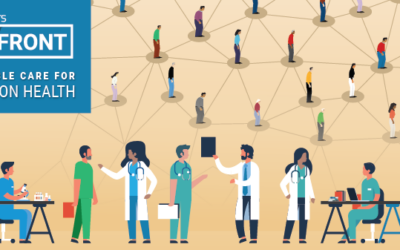For cancer patients and cancer survivors, accessing medical records via patient portals can be critical to their treatment and long-term health. With the White House reaffirming their commitment to enhancing patient navigation in cancer care, a new study by the Office of the National Coordinator for Health Information Technology (ONC) highlights a multitude of findings but all reflect a common theme: cancer patients are increasingly accessing their health information online. For example, from 2020-2022, more than half of recently diagnosed cancer patients accessed their online medical records, a significant increase from 2017-2018 and nearly double the access by those without cancer diagnoses. The federal government is also pushing forward with plans to further reduce barriers to records and enhance emerging digital tools and technologies. The culmination of these efforts are expected to widen cancer patients’ access to their electronic health records, no matter where they are in their care journey or how many medical providers they have.
Navigating a cancer diagnosis is difficult; securely accessing and quickly sharing your information with your healthcare team shouldn’t be. Greenlight believes that control of your health information makes all the difference during the treatment journey. Providers must access a holistic medical history and patients need increased confidence in their medical choices. Our work to reduce barriers by providing the most advanced technology for accessing and sharing electronic health records across the medical ecosystem means the opportunity of a better outcome for all, including cancer patients.
Read the full article here: Access and Use of Electronic Health Information by Individuals with Cancer: 2020-2022 | HealthIT.gov



